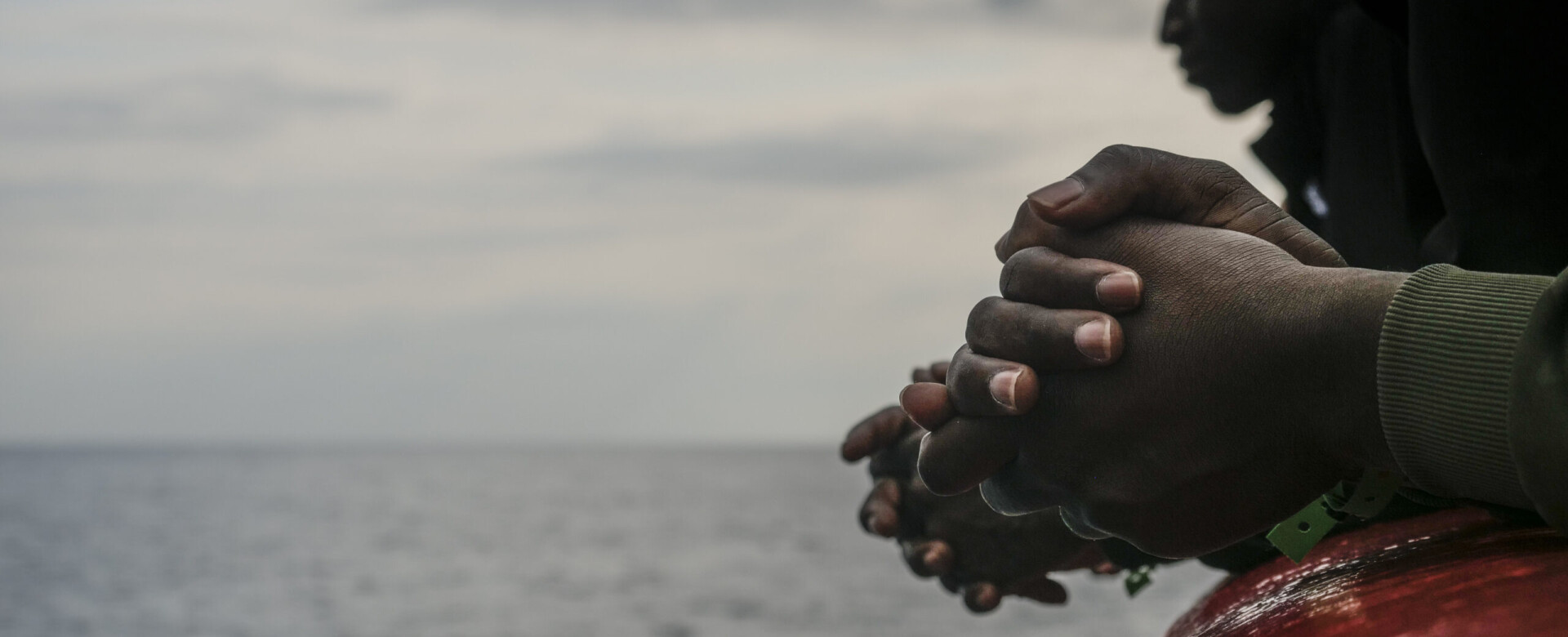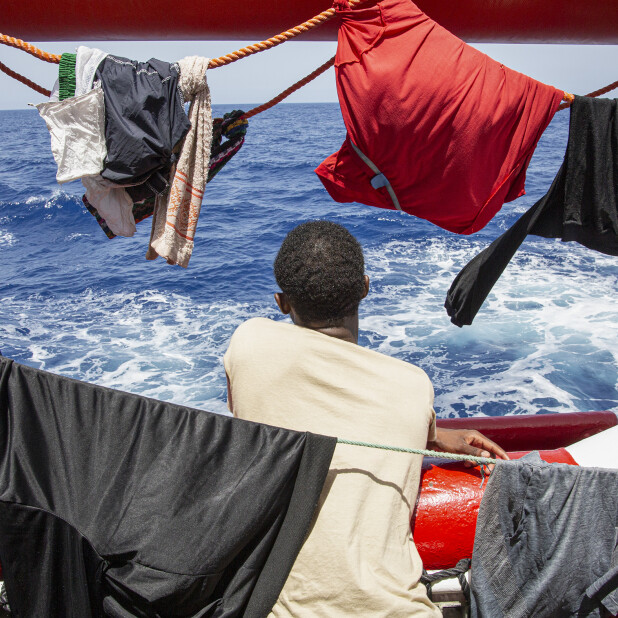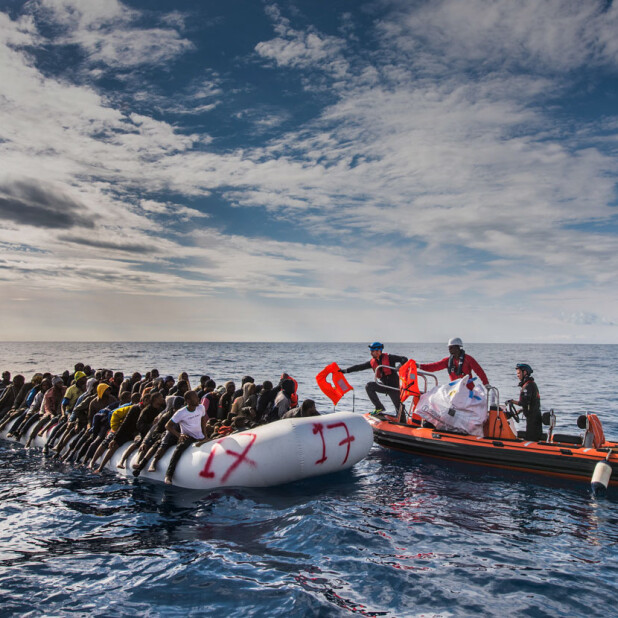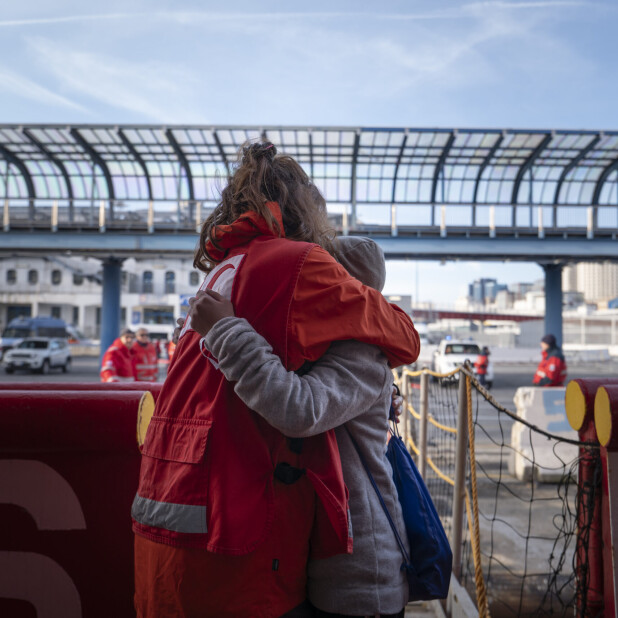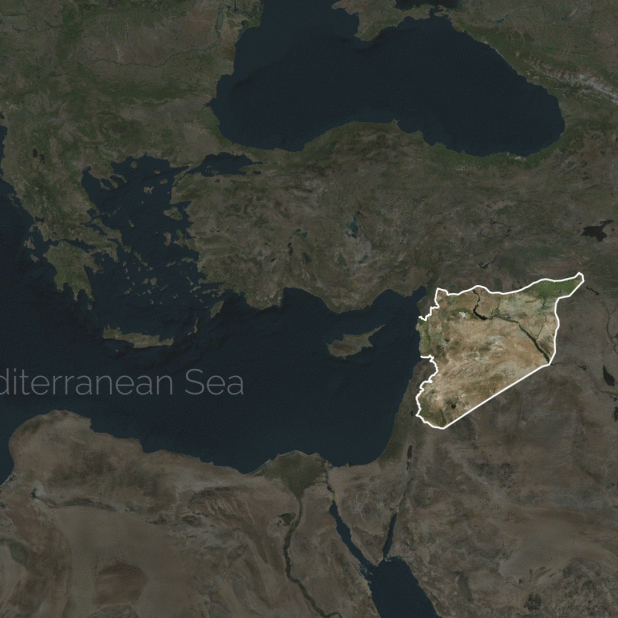
After being intercepted by Tunisian authorities, three West African migrants rescued by SOS MEDITERRANEE describe how they were handed over to Libyan militias, detained, and extorted. Their stories point to an alarming pattern of state-enabled human trafficking between the two countries.
Sold, Not Deported
When the rubber boat was rescued in the Libyan Search and Rescue Region on January 20, 2025, many of those on board had already survived multiple journeys, arrests, and detentions. But some of the survivors, among them Charly*, Ivanna*, and Aïssa*, shared particularly disturbing accounts once on board the Ocean Viking. All three independently reported being intercepted by Tunisian authorities, only to be sold to Libyan militias operating across the desert border.
“The Tunisian police sold us to kidnappers, Libyan bandits,” said Charly, a painter from Cameroon. “The selling price was 150 dinars [approximately 25 euros], less than the price of a goat.”
Charly was first intercepted off the coast of Tunisia after attempting to reach Lampedusa by boat. He was among roughly 200 people stopped at sea and forcibly taken back to Sfax, where he and others were beaten, zip-tied, and loaded into buses. The vehicles drove for hours without stopping, with no food or water provided.
“They transported us on these buses where there were no seats. We sat on the floor with our hands tied behind our backs and they beat us. We spent 10 hours on the buses. We were tortured and told that black people shouldn’t come to Tunisia,” he said. “When we arrived in the desert, we saw the Libyan pick-ups and the Tunisians sold us to kidnappers, Libyan bandits.”
Raided and Kidnapped
Ivanna, 26, was living in a house with around 100 other migrants in El Jem, Tunisia, when she was detained in a nighttime raid by local police.
“They handcuffed us and put us in cars, driving us to the desert,” she said. “We arrived at a post where it said, ‘deportation centre’. They were armed men from Libya. They loaded us into a truck with ‘police’ written on it, but it wasn’t the police but bandits. The guns were pointed at us and the Libyans gave the Tunisian police money in a bag.”
She was held in a prison run by a man from Tripoli. To secure her release, she had to call her sister in Cameroon, who went into debt to pay 450,000 Central African CFA francs [approximately 690 Euro].
“I stayed in the prison for a month, eating very little: bread and cheese, that’s all. It was so hot.”
Once released, she worked for a Libyan family without pay for eight months so they would pay for her attempt to cross the central Mediterranean.
Death in Detention
Aïssa, 22, from Guinea Conakry, recounted a similar chain of events. She was intercepted by Tunisian coastguards in summer 2023 while attempting to cross the Mediterranean from Sfax.
“They mistreated us, hit us, and transferred us to a bus. Inside it was like a fridge, it was all closed. They tied our hands and moved us. I didn’t know where I was going.”
The bus took her to the Libyan border, where she was handed to men in military uniforms. She was taken to Zawiya, to a site run by a man named Osama – a man Charly also mentioned. The site functioned both as a detention center and as a point of departure for boat crossings.
“Two of my friends died in prison. One died on my lap. When they took her body out, I was crying. They hit me to make me stop and calm down. To get out, I called my family in Guinea. I stayed in that prison for eight months. They sent 4,000 dinars [approximately 650 Euro] to get me out.”
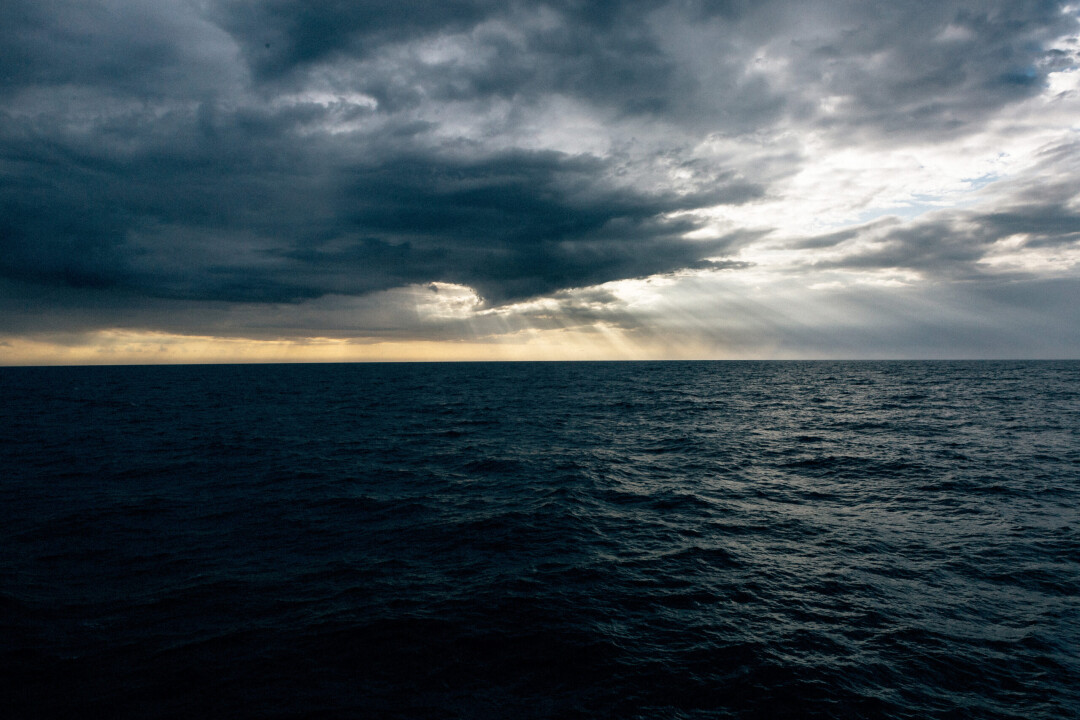
Patterns of State-Enabled Trafficking
The testimonies of Charly, Ivanna, and Aïssa align with findings from other investigations, which point to the direct involvement of Tunisian authorities in the sale and forced transfer of migrants to armed groups in Libya. The report State Trafficking, published in January 2025 by the collective of researchers RRX, presents evidence of a systematic practice in which sub-Saharan migrants in Tunisia have been targeted in mass raids, detained without due process, and then handed over to Libyan actors known for operating trafficking and extortion networks. SOS MEDITERRANEE shared some of these testimonies during the launch of the report at the Parliament of the European Union on 29 January 2025. Communications Manager Lucille Guenier, who collected the three testimonies quoted in this articled, told the Parliament that several people on board the Ocean Viking reported having similar experiences but did not want to share their stories publicly for fear of persecution. These practices are not isolated. In several documented cases, Tunisian authorities conducted collective expulsions under the pretext of border security or deportation. In practice, however, they transported migrants to remote desert zones where they were handed to armed Libyan groups in exchange for cash. These accounts are consistent with a communication issued by the Office of the United Nations High Commissioner for Human Rights (OHCHR) in October 2024, ² which raised concerns over multiple reports received of migrants, refugees, and asylum seekers being sold by Tunisian security forces to armed non-state actors in Libya. Such handovers violate multiple Provisions of international law, including the principle of non-refoulement, which prohibits returning individuals to places where they risk torture or inhumane treatment.
The Cycle of Abuse in Libya
Once inside Libya, all three survivors described systematic abuse, ranging from forced labour to arbitrary detention and physical violence. Prisons like Bir Al Ghanam and Zawiya, which were mentioned by both Charly and Aïssa, are part of a vast network of detention sites where migrants are held for ransom.
“There’s a man called Osama who says he’s an NGO and that he’s going to help people cross,” said Charly. “He has his own boats. He’s set up a camp in Zawiya, his own prison where he gathers people.”
While Charly eventually managed to buy his way out by painting houses, others – like Ivanna and Aïssa – were forced to work for months to secure their release or fund another crossing attempt.
Charly also explained why the sea is the only way out of the cycle of exploitation and abuse in Libya. “When I arrived in Libya, I had no identity papers and no way of having my nationality recognized,” he said. “There is no Cameroonian consulate in Libya. Libya isn’t really a governed country anymore. Everyone does what they want.”
“I'm safe, but this is for others”
In the end, all three survivors made it out of Libya and were rescued at sea. But they know many others have not been so fortunate.“It was the first time I’d crossed from Libya when you rescued me,” said Charly, who had previously attempted to cross the Mediterranean from Tunisia. “It was God who sent you. It was like a miracle.”Their testimonies – and the growing body of evidence documenting the systematic nature of these abuses – are another stark reminder that the EU’s and Italy’s partnership with Libya and Tunisia on migration is indefensible. Through agreements like the Italy-Libya Memorandum of Understanding and the EU-Tunisia deal, European states have funded, equipped, and legitimized authorities and actors responsible for serious human rights violations. These arrangements enable the interception of people at sea and their return to places where they face abuse, extortion, and, in some cases, trafficking – often with no access to protection or justice.In a serious escalation of the ongoing crackdown on civil society and support to people on the move, Libya’s Internal Security Agency suspended the operations of nearly all major international humanitarian organizations in the country in early April, accusing them of undermining national sovereignty and spreading values deemed contrary to Libyan identity. These suspensions, coupled with interrogations, office closures, and frozen accounts, effectively strip thousands of vulnerable people of access to vital medical care and humanitarian assistance.“I’m talking to you because you’re an NGO and this can help my brothers by raising international attention to the treatment of black people, my brothers who are persecuted in the Maghreb countries,” said Charly. “I’ve already arrived, I’m safe, but it’s for others.“Libya and Tunisia are not safe places for people rescued at sea. Both countries have been repeatedly documented as sites of racialized violence, extortion, and widespread abuses against migrants and refugees. SOS MEDITERRANEE urgently calls on European and Italian authorities to stop all forms of support to systems that trap people on the move in cycles of abuse and exploitation.*All names have been changed to protect the identity of the survivors. The testimony of Charlie was taken onboard Ocean Viking by freelance journalist Robert Prosser.¹ https://statetrafficking.net/²https://spcommreports.ohchr.org/TMResultsBase/DownLoadPublicCommunicationFile?gId=29320
